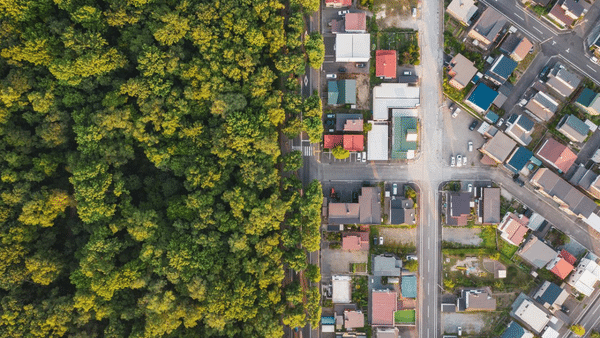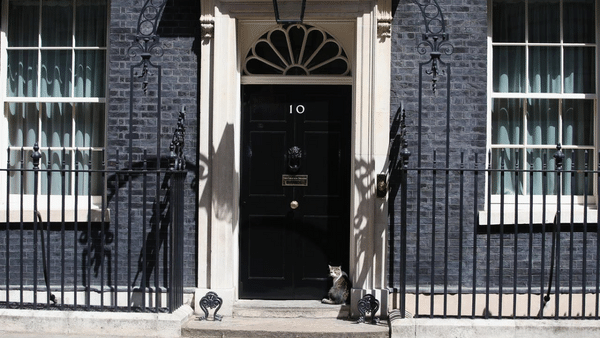Julian Dobson FRSA recently organised High Street Camp
When Mary Portas conducted her review of the high street last year the popular view was that it was a response to decline. But the real issue for our high streets is divergence. Some retail centres, either out of town, in malls like Westfield Stratford City or in hubs like central Birmingham or Reading, will continue to succeed commercially. Others are changing rapidly and for some, this has reached crisis point: the story of the high street in Rochdale where even McDonald’s is leaving is often quoted. The question is how to rethink such places before it is too late.
Usually the question is posed in terms of a threat, and it certainly is a threat if we don’t revive vacant and underused spaces with activities that will make them attractive and useful to people. But, as I and others argued in a submission to the Portas Review, it’s also an opportunity to create what we call a ‘21st century agora’: a multifunctional social centre that can be a hub for the ‘civic economy’, where participants work to create shared value, as well as the traditional shopping economy.
The event was supported by the RSA Fellows, and chimes not only with its historic mission to encourage arts, manufactures and commerce – all of which we need to see on our high streets – but also with its contemporary concerns with the connections and motivations than can enable us to live well and productively.
The high street of the future, as Matthew Taylor commented in his reflections at the end of the day, should be one where we can and do meet anyone: and to enable that to happen, there must be something for everyone. Retail will play its part, but it will be retail based on distinctiveness, experimentation and local relationships. The centres that succeed in reinventing themselves will be those that embrace diversity and imagination, and are rooted in the needs and wishes of their communities – not the ones that try to mimic their out-of-town competitors.
That imagination was evident in abundance at last month’s High Street Camp, the UK’s first ‘unconference’ bringing together people who want to breathe new life into our high streets. Drawing together experts and activists from across the country, with a visit from Mary Portas at lunchtime, it demonstrated the wealth of ideas waiting to be tapped by the many emerging ‘town teams’.
Hosted at the Willesden Green Library Lab in northwest London, it provided an opportunity for participants to see at first hand not only some of the problems of our high streets, but some of the creative solutions being developed for disused spaces such as Queen’s Parade, a row of empty shops now trialling new business ideas.
The format may have been relaxed, but the content and the objectives were serious. With half the UK’s high street and shopping centre leases due for renewal in the next three years, the vacancy rate in struggling centres will only increase. Where the big retailers are moving out, we need new functions and a new sense of purpose.
I think there are three points we can draw from the buzz and excitement of High Street Camp. The first was captured by Mary Portas. Social capital, she said, creates economic capital. In other words, wealth is created by making connections and building trust and friendship. The more connected society can be, as the RSA’s Connected Communities work has begun to show, the more equal it can become. And the more equal the society, the better chance all have to thrive in business.
The second was from Matthew Taylor. He provided a helpful foil to Mary Portas's get-up-and-go, encouraging participants to think and research before rushing ahead with apparently good ideas, and putting in a good word for the oft-maligned bureaucrats whose job is to balance competing interests. His call to 'hug a planner' may not be a headline-grabber but was an important reminder of the value of public servants. They can be key allies in achieving progress.
The third point is about the scale and speed of change, which we are only just starting to get to grips with. Many people start thinking about planning or community action because they see the impending loss of something they value, rather than because they have a vision for creating something new. For many high streets, it may be too late to prevent the loss, so creating the new becomes more urgent.
I think we are only just beginning to get to grips with the scale of the challenge as the nature of retail changes and global economic storms break, but the possibilities are as great as the problems. This belief that we have a chance to create places that add value to their local communities, rather than just extracting value from them, was at the heart of the paper the High Street Camp organisers submitted to the Portas Review.
We’ll be following the event up at the Revive Our Town Centres forum, and RSA Fellows are more than welcome to join in and post their own thoughts.
for further information on High Street Camp contact Julian direct
Email [email protected]
Related articles
-
Design for Life: six perspectives towards a life-centric mindset
Joanna Choukeir Roberta Iley
Joanna Choukeir and Roberta Iley present the six Design for Life perspectives that define the life-centric approach to our mission-led work.
-
Inventing meaning and purpose: a politics award for our times
Ruth Hannan
Ruth Hannah is inspiring you to submit your creative and courageous political project to the Innovation in Politics Awards 2022.
-
Open call: Creative collaboration and collective imagination research
Hannah Webster Ella Firebrace
Learn more about the UNBOXED: Collective Futures open call; inviting you to submit what you are doing to help shape better futures for people and planet.





Join the discussion
Comments
Please login to post a comment or reply
Don't have an account? Click here to register.
Outstanding web page! I in fact love just how it’s basic on the eyes and the data usually are adequately written. I’m wondering generate an income could possibly end up being advised when a fresh write-up may be built. I have bought for your FEED which often should do the secret! Have a very wonderful morning!